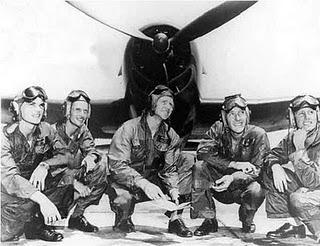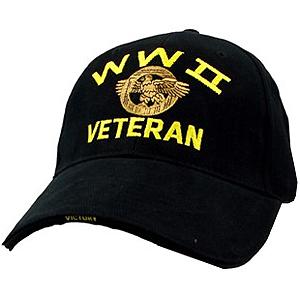
American ground crew like GMGF Jim
Just this past week Americamarked the 70th anniversary of the Japanese attack on Pearl Harbor;seventy years, a lifetime ago. Thisweekend my girlfriend’s maternal grandfather, Jim (hereafter referred to as GMGFJim), will celebrate his 92nd birthday. These two occasions, the first a date of great historical significance, are separated by only a handfulof days, and connected by the passing years.Theattack on Pearl Harbor plunged the United States into World War II. Americans responded by throwingthemselves into the war effort, including millions of servicemen destined forall parts of the globe, in what would be the most impressive display ofmilitary force in history [1]. One of those men was a young GMGF Jim, in hisearly 20s, who enlisted in the U.S. Army, and was assigned to the new UnitedStates Army Air Force (USAAF), the predecessor of the modern USAF. When I metGMGF Jim in the middle of last year I was curious to hear more about hisservice, having learned only snippets from my girlfriend. Unfortunately, hisadvancing age has robbed him of most of his hearing, which means that conversationswith him proceed in bursts of short shouted questions, often repeated, andfollowed by equally short shouted replies. All of this leads to a ratherhalting dialog frequently waylaid by misunderstandings, incomplete details,and the basic ineffectiveness that disjointed rhythm has on communication. Iwould relate it to a phone call where there’s a long delay and you constantlyhave false starts, long pauses, and overlapping talking. It just doesn’t workwell.
Two Experiences
Itell you this as a preface to what I’ve gathered of GMGF Jim’s war service; Ithink I have the broad elements correct, but the details may be iffy. He setsail from wherever basic training was, maybe his home of Baltimore, destinedfor Panama City, Florida. But due to some sort of mix-up, the ship instead went1,500 miles too far south, to Panama…the country…in Central America. I knowwhat you’re thinking: That can’t be right? Which was pretty much my reaction,but I pressed the point with GMGF Jim a couple of times and received that sameanswer (all I could do was shake my head and say “okay”). So, once in Panama,the local American military commanders had to do something with a ship full of recruits.Fortunately, there was a rather important strategic asset in the area, thePanama Canal. The Canal needed guarding and part of that duty fell to theUSAAF. After a short stay on land, GMGF Jim and his fellow shipmates were sent throughthe Canal and sailed southwest to the Galapagos Islands [2]. There the USAAF established abase at Baltra Island. Planes from this base patrolled for enemy submarines andprotected Allied (and neutral) shipping on the western approaches to the Canal.GMGF Jim spent the rest of the war as a member of the ground crew servicing planes.
Giventhe general danger of being in the military during World War II, I consider gettingstationed in Darwin’s quiet balmy islands to have been a pretty plumassignment. Not bad considering it was a mistake. But it was work and it was far from home. Most of war is extendedboredom and I’m sure GMGF Jim had moments of the tropical doldrums. Still, it’san interesting story, and raises a few questions: He really ended up in Panamainstead of Florida? The vast American military-logistic system was capable ofmisplacing an entire ship? There were on-site ad hoc solutions that ended uplasting the entire war? Whatever happened in Panama City when his ship didn’tarrive? What about the men originally slotted for Baltra Island, where theythere as well? It all strikes me as a semi-comical combination of Catch-22 and Guard of Honor [3]. It’s also something I was never likely tolearn without hearing it from the mouth of the man who lived it.
Mymaternal grandfather, Jack, also served in World War II as an artilleryman inEurope. He died fifteen years ago at the age of 79. In the last six years ofhis life his mind was decimated by Alzheimer’s, but even late in his life, longafter most of his recent memories were lost, he was still able to tell me ofhis time in Europe. His service was more typical of what we think of as theAmerican experience, war in Europe, fighting Germans through France, etc., thoughI gathered from him that he didn’t have any close calls on the battlefield.
Dwindling Ranks

A hat that GMGF Jim always wears
Takethese two accounts and multiply them by six million. That’s the story of theAmerican soldier in World War II. And sadly, year-by-year, those stories arefading out of living memory. All of the famous men of the War, everyone you arelikely to have learned about from history lessons, have long since passed. Todayanyone who served in World War II is elderly, and even those who were childrenduring the war are old now. A decade from now there will only be a tiny companyof veterans still alive, and a decade after that there will be none. The last veteran of World War I died earlier this year at age 110.We’refortunate that World War II occurred in the age of cinema; many thousands ofhours of footage were captured from all fronts. Probably no conflict has beenmore thoroughly covered by journalists and historians. We are lucky to havecountless memoirs, interviews, and firsthand accounts from all those involved, fromleaders and generals to common soldiers. And the War has been a favorite subject offilm, novels, television, and other fiction. For all these reasons the realityof World War II won’t be lost in the fog of history (at least I hope not).
However,the dwindling ranks of veterans, which will inevitably be followed by thedemise of anyone who remembers the War, diminishes our perspective. No historianor interested amateur can ask a Civil War soldier what it was like atGettysburg. No one can ask what it was really like at Verdun. Soon no one willbe able to ask, “what was it really like at the Battle of the Bulge?” to anyonewho fought in it. Or, “what was the home front like with so many men overseas,with rationing, with the weight of war?” to anyone who lived through it. Thatwill be a loss.
Ican’t ask my grandfather Jack for more information on his experience in Europe.All I have is the broad outline of his service. Most of the details were lostwith him. But when I see GMGF Jim at his birthday party I’ll ask him more abouthis wartime experience. I’ll probably hear the same facts I’ve already beentold, but maybe I’ll find out new details; details that will be forgotten when he’s gone. Maybe you’llbe seeing a veteran at some point over the coming holidays. If so, I’d suggesttalking to them more about their experiences. Keep historyalive, at least for a while longer.
---
NOTES:
[1] TheUnited States successfully fought simultaneous wars against Germany and Japan,the only global power in the war. The British also fought in both theaters, butwere reliant on American resources, men, and materiel. The United States alsosupplied the Soviet Union with vast quantities of war material, from obviousproducts like trucks, to necessities like boots, and wire. These resources wereinvaluable to the Soviet war effort. See Chris Bellamy’s Absolute War for more details.
[2] GMGFJim pronounces Galapagos as –Gal-a-PAY-gos– instead of –Ga-lap-a-gos. Afternearly seventy years I doubt I can convince him of the correct pronunciation.Perhaps this was an affected pronunciation adopted by U.S. soldiers stationedthere, a communal and coping mechanism. In that case, his pronunciation is bothinformative and fine with me.
[3] Catch-22 by Joseph Heller and Guard of Honor by James Gould Cozzens.Both books are highly recommended, especially for those interested in World WarII literature.

